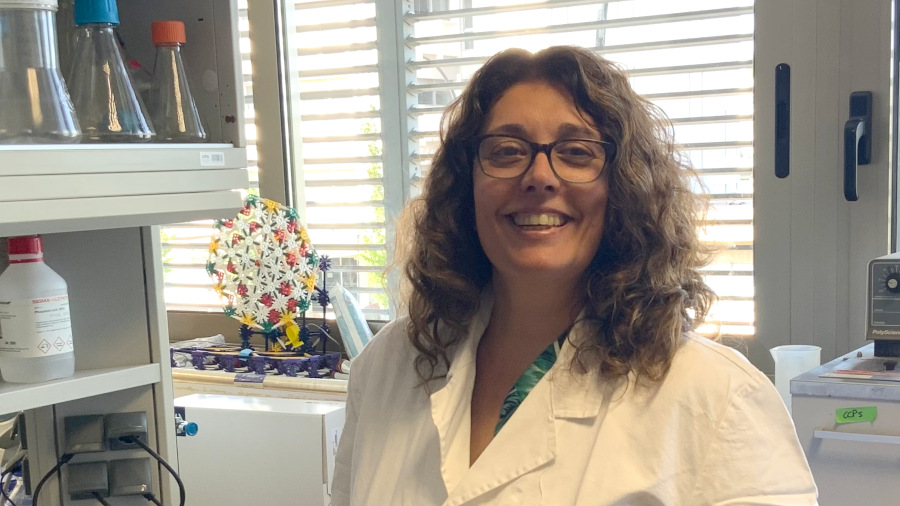IBB researcher Julia Lorenzo is the director of the NanoERT project, a technology that improves enzyme replacement therapies.

The NanoERT project directed by researcher Julia Lorenzo from the UAB Institute of Biotechnology and Biomedicine is one of the projects to receive funding from the CaixaImpulse Innovació programme. This call, organised by the "la Caixa" Foundation, selected 29 biomedical projects conducted in research centres, hospitals and universities from Spain and Portugal with the aim of accelerating the arrival of innovations to the market and bringing them closer to patients. The UAB project, in consortium with the Valencian Príncipe Felipe Research Center Foundation (CIPF) and the Vall d'Hebron Research Institute (VHIR), will receive 150,000 euros in funding.
Gaucher's disease is a rare hereditary disorder characterised by the enzymatic deficiency of the lysosomal protein GBA. This deficiency causes serious problems in the "cell cleaning" mechanisms, which then gravely affects the functioning of different organs such as the liver, spleen, bones and, in some cases, even the brain.
The project's researchers have now developed a new technology, called nanoERT, to improve the current enzyme replacement therapies used in different lysosomal disorders, such as Gaucher's disease. This innovative technology, applied to the GBA protein, can improve current therapies being offered to patients with Gaucher's disease, since it reduces treatment frequency and increases its effectiveness in the affected organs. That not only improves the quality of life of patients, but also contributes to reducing the cost of the treatment for the healthcare system.
This technology is also being applied to other disorders, such as Parkinson's disease, in which GBA alterations are the main genetic risks in developing the disease. The application of the nanoERT technology means that a therapy can be developed in which, when applied nasally, is capable of transporting GBA to the brain, and thus restoring GBA activity in the neurons. This opens the door to a possible therapy for this neurodegenerative disease which currently has no cure.
Julia Lorenzo is principal investigator of the Protein Engineering and Nanomedicine Group at the Institute of Biotechnology and Biomedicine (IBB) and professor in the Department of Biochemistry and Molecular Biology at the UAB. Throughout her career, her research has focused on the development and characterisation of nanomaterials with applications in biomedicine. She has contributed to the field with more than 100 publications including scientific articles, book chapters and patents, reflecting a broad impact in the field of biomedical research.
In 2015, the "la Caixa" Foundation launched this programme to support innovation and transfer in biomedicine and health. Since then, the entity has allocated 24.7 million euros to 231 projects, which have resulted in the creation of 44 spin-offs. These spin-offs, in turn, have achieved additional co-funding, through other competitive calls or private investors, worth more than 100 million euros.






